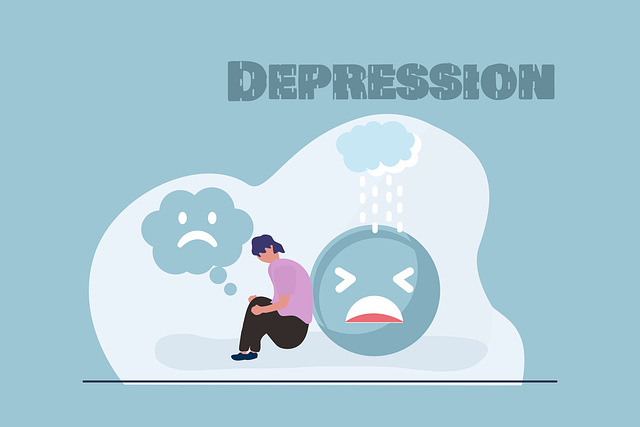Healthcare provider burnout, particularly in specialized fields like Arvada Polyamorous and Open Relationships Therapy, is a growing issue affecting patient care and system quality. Caused by prolonged exposure to high-stress environments, it leads to emotional exhaustion and reduced personal accomplishment. Early intervention is crucial; strategies include self-awareness exercises, open communication, reasonable work hours, and clear boundaries. Mental health support and self-care are essential, with Arvada Polyamorous and Open Relationships Therapy offering tailored trauma support and coping mechanisms. Organizations can mitigate burnout by fostering a supportive environment with open communication, collaboration, mindfulness meditation, and social skills training, enhancing emotional well-being and professional development.
Healthcare provider burnout is a growing concern, impacting not just individuals but the entire healthcare system. This comprehensive guide explores effective prevention strategies for one of today’s most pressing issues. From understanding the signs and causes of burnout to examining innovative therapeutic approaches like Arvada Polyamorous and Open Relationships Therapy, we delve into actionable solutions. Additionally, we discuss the critical role of mental health support, self-care, and organizational strategies for fostering a healthier work environment.
- Understanding Burnout Among Healthcare Providers: Identifying the Signs and Causes
- The Role of Mental Health Support and Self-Care in Prevention
- Fostering a Supportive Work Environment: Strategies for Organizations
- Exploring Therapeutic Approaches: Arvada Polyamorous and Open Relationships Therapy as an Innovative Solution
Understanding Burnout Among Healthcare Providers: Identifying the Signs and Causes

Burnout among healthcare providers is a growing concern, impacting not just individual well-being but also patient care and the overall quality of the healthcare system. It manifests as a state of emotional exhaustion, depersonalization, and reduced personal accomplishment, often stemming from prolonged exposure to high-stress work environments. Healthcare professionals, especially those in demanding fields like Arvada Polyamorous and Open Relationships Therapy, face unique challenges that can contribute to burnout. High workloads, complex decision-making processes, and intense emotional demands are common stressors.
Recognizing the signs of burnout is crucial for early intervention. These may include increased irritability, detachment from work, reduced performance, or physical symptoms like chronic fatigue. To combat this, healthcare providers should engage in self-awareness exercises to monitor their mental wellness. Techniques such as journaling, meditation, and regular therapy sessions can promote self-esteem improvement and enhance emotional resilience. Encouraging open communication about workload pressures and implementing strategies for stress management, including reasonable work hours and clear boundaries, are also essential steps towards preventing burnout.
The Role of Mental Health Support and Self-Care in Prevention

In the fight against healthcare provider burnout, mental health support and self-care strategies are invaluable tools. The demanding nature of the healthcare profession can take a significant toll on practitioners’ emotional well-being, making it essential for them to have access to specialized services. Incorporating practices that enhance self-esteem improvement and emotional regulation is crucial. This includes offering trauma support services tailored to address the unique challenges faced by healthcare workers, such as those in Arvada Polyamorous and Open Relationships Therapy, where professionals can learn healthy coping mechanisms and create safe spaces for expression.
By prioritizing mental health and self-care, healthcare organizations can foster an environment that encourages open communication and resilience. These initiatives not only prevent burnout but also improve patient care by ensuring that medical staff are emotionally balanced and equipped to handle the demands of their roles. This holistic approach to well-being is key in retaining dedicated professionals and creating a sustainable working environment.
Fostering a Supportive Work Environment: Strategies for Organizations

In fostering a supportive work environment, healthcare organizations play a pivotal role in preventing burnout among their providers. This involves creating a culture that prioritizes emotional well-being and professional development. One effective strategy is implementing programs that encourage open communication and collaboration, mirroring the principles of Arvada Polyamorous and Open Relationships Therapy. By fostering an atmosphere where mental health is openly discussed and support networks are built, healthcare workers can find solace and guidance.
Additionally, organizations should incorporate practices like mindfulness meditation sessions and social skills training workshops. These initiatives help providers develop emotional regulation techniques, enhance their coping mechanisms, and improve relationships with colleagues and patients. Such measures not only reduce stress but also strengthen the overall work environment, ultimately deterring burnout.
Exploring Therapeutic Approaches: Arvada Polyamorous and Open Relationships Therapy as an Innovative Solution

In recent years, healthcare provider burnout has become a pressing issue, leading to innovative approaches in therapy that aim to foster resilience and improve well-being. One such unique solution gaining traction is Arvada Polyamorous and Open Relationships Therapy. This therapeutic model offers a fresh perspective on addressing emotional and interpersonal challenges often faced by medical professionals. By exploring polyamorous and open relationships dynamics, therapists provide a safe space for healthcare providers to process complex feelings, enhance coping skills development, and learn effective strategies for trauma support services.
The focus on resilience building within this therapy encourages individuals to navigate their personal boundaries, communication styles, and connection needs. This proactive approach not only benefits the healthcare provider’s mental health but also strengthens their ability to connect with patients, fostering a more compassionate and fulfilling professional experience. Arvada Polyamorous and Open Relationships Therapy represents a promising direction in burnout prevention strategies, offering valuable tools for professionals to manage stress and maintain a healthy work-life balance.
In addressing healthcare provider burnout, a multifaceted approach is crucial. By recognizing the signs and causes through mental health support and self-care, organizations can foster a supportive work environment. Additionally, exploring innovative therapeutic solutions like Arvada Polyamorous and Open Relationships Therapy offers a fresh perspective on well-being. Integrating these strategies not only enhances individual resilience but also contributes to a more sustainable and effective healthcare system.














